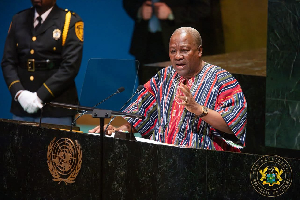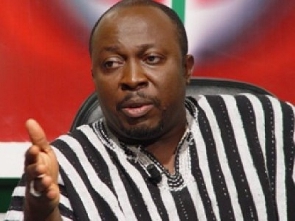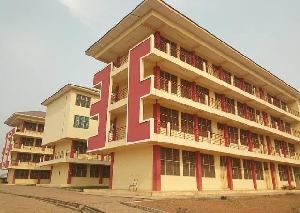The Centre for Policy Analysis (CEPA) has said the decision by the executive arm of government to relinquish 10 percent of their pay in 2014 must motivate a national shift towards restrained spending to support the restoration of the country’s fiscal health.
The pay-cut, which critics have called “a gimmick”, was announced by Minister of Finance Seth Terkper in his 2014 budget statement to Parliament last week. He said the savings will be put into a fund dedicated to maternal and neonatal healthcare initiatives.
Speaking in an interview with the B&FT, Dr. Joe Abbey, Executive Director of CEPA, said the decision is a “strategic choice” that must trigger an analogous reaction by parliamentarians and signal to organised labour that it is time to make sacrifices as government struggles to trim the fiscal deficit.
“I don’t see the 10 percent proposed pay-cut as a gimmick; it’s a strategic choice that has been made,” he said. “It is daring the rest of the society to rise up to the fact that we can’t just go on and tax and tax; we’ve got to find some way of restraining expenditures, including pay.”
Dr. Abbey, who warned that fiscal consolidation in the aftermath of the large 2012 budget deficit has not marched forward fast enough, said consolidation, despite the difficult choices it entails, is necessary not only to rein in Ghana’s rising debt, but also because the current pace of spending through borrowing is crowding out the private sector, particularly small- and medium-sized enterprises, from the credit market.
Last month, Fitch downgraded the country’s sovereign credit rating from B+ to B, citing slow progress towards bringing down the deficit which rose to 11.8 percent of GDP in 2012.
In his budget, Mr. Terkper said government is embarking on a multi-year fiscal stabilisation plan involving revenue augmentation and expenditure rationalisation, especially readjusting spending from recurrent items such as wages and interest to capital projects and infrastructure.
The budget estimated the wage bill to rise by 5 percent next year to GH¢8.97 billion, and overall expenditure on compensation – that is, wages plus pensions and gratuities – to increase by 9 percent to GH¢10.6 billion.
Both increases appear modest, but are prone to revision as government and public-sector unions could not complete 2014 wage negotiations before the budget was read – which had been the initial strategy to forestall overruns in wage spending next year.
Dr. Abbey worried that the inability to conclude the wage talks could prove to be a setback to the attempt to gain control of the wage bill by limiting pay increases.
“The public sector wage bill as a ratio to GDP is higher in 2013 than in 2012, and it looks like there was more migration [onto the Single Spine policy] that took place in 2013 than had been earlier projected. And we’re not out of the woods because the negotiations with organised labour have not been completed,” he said.
B&FT has learnt that government is hoping to cap any pay hike at 10 percent -- just as this year -- in a bid to reduce the share of wage spending in total public expenditure. Mr. Terkper has said the ultimate goal is to slash the ratio – which is above 50 percent at present – to 35 percent.
His budget projected the deficit to be 10.2 percent of GDP this year, 8.5 percent in 2014, and 6 percent in 2015. Earlier estimates had projected a gap of 6 percent by 2014.
'Monetary policy dilemma'
With fiscal policy still expansionary and inflation rising, the Bank of Ghana will find it hard not to keep policy tight, Dr. Abbey said, though he also warned of the risk of monetary policy “over-squeezing” borrowers.
“We have a lot of cost-push inflation factors staring us, but tightening monetary policy on volatile elements is not your best option. You can over-squeeze, and already interest rates are too high,” he said. “So if you don’t loosen monetary policy in a sustainable way, then real interest rates will remain in double digits.”
Business News of Tuesday, 26 November 2013
Source: B&FT
Executive pay-cut must send signal - CEPA
Entertainment












